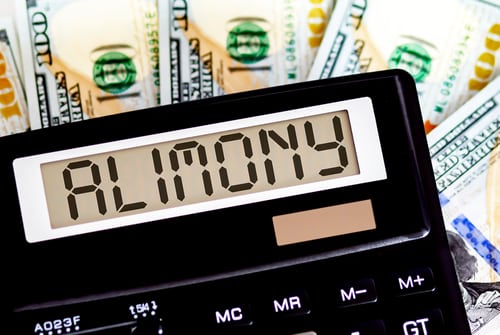If you have ever applied for a credit card, a charge account, a loan, or a job, then there is a “consumer report” regarding your address, your employment, your bills, and whether you have been sued, arrested, or filed for bankruptcy. These reports are created and sold by Consumer Reporting Agencies or Credit Reporting Agencies (CRAs).
The Fair Credit Reporting Act (FCRA) is designed to promote accuracy and to maintain the privacy of the information used in consumer reports. You may also have additional rights under state laws.
The following are answers to frequently asked questions about the FCRA:
Who has my credit report?
Typically, the three major credit bureaus have your credit report:
- Equifax, P.O. Box 740241, Atlanta, GA 30374-0241; (800) 685-1111; http://www.equifax.com
- Experian (formerly TRW), P.O. Box 2104, Allen, TX 75013; (888) EXPERIAN (397-3742);http://www.experian.com
- Trans Union, P.O. Box 1000, Chester, PA 19022; (800) 916-8800; http://www.transunion.com
Any person or company that has denied you credit, insurance, or employment due to your credit report must give you the name, address, and telephone number of the CRA that provided the report.
How can I find out what is in my report?
Just ask for it. The CRA must tell you about everything contained in your repor and, typically, must reveal the sources of its information. Also, the CRA also must give you a list of everyone who has requested your report within the past year (two years for employment related requests).
If a company takes adverse action against you (such as denying you credit, insurance, or employment) and you request your report within 60 days of the adverse action, then such company must give you a free copy of your report. Also, you are entitled to one free report a year if you are unemployed and plan to look for a job within 60 days, if you are on welfare, or if your report is inaccurate because of fraud.
Can anyone else get a copy of my report?
No. Only people with a legitimate business need, as recognized by the FCRA. For example, a company is allowed to get your report if you apply for credit, insurance, or to rent an apartment. Your employer (or future employer) may do so only if you agree in writing.
Is there anything I can do about inaccurate or incomplete information?
Yes. Under the FCRA, both the CRA and the information provider have responsibilities for correcting inaccurate or incomplete information in your report. To protect all your rights, you must dispute the report in writing:
- To the CRA: Describe the inaccurate information. The CRA must reinvestigate this information usually within 30 days (unless they consider your claim frivolous). They must also notify the creditor information provider which must then investigate the information and report its results. If the information turns out to be inaccurate, then the information provider must notify all nationwide CRAs to correct the information. When reinvestigation is complete, the CRA must give you the written results and a free copy of your report if there is a change. If an item is changed or removed, the CRA cannot put the disputed information back into your report unless the information provider verifies its accuracy and completeness. Further, the CRA must give you the name, address, and phone number of the information provider.
- To the Information Provider: Also write the creditor other information provider to inform them that you dispute an item. If the provider reports the item to any CRA, it must include a notice of your dispute. In addition, if your dispute is valid, then the information provider may not use the information again.
Keep a copy of everything you send to the CRAs and information providers. Also, it is recommended that you send all correspondence by registered mail, return receipt requested or certified mail.
What should I do if a CRA, user, or information provider violates my rights under the FCRA?
Contact your local attorney or report violations to the Federal Trade Commission.
Do I have the right to sue for damages?
Maybe. You may sue a CRA, a user, or an information provider in state or federal court for most violations of the FCRA. If you win, the defendant will have to pay damages and reimburse you for attorney fees to the extent ordered by the court. Here are the two relevant sections regarding liability for noncompliance with the FCRA:
§ 616. Civil liability for willful noncompliance
[15 U.S.C. § 1681n]
(a) In general. Any person who willfully fails to comply with any requirement imposed under this title with respect to any consumer is liable to that consumer in an amount equal to the sum of
- (1)(A) any actual damages sustained by the consumer as a result of the failure or damages of not less than $100 and not more than $1,000; or
- (B) in the case of liability of a natural person for obtaining a consumer report under false pretenses or knowingly without a permissible purpose, actual damages sustained by the consumer as a result of the failure or $1,000, whichever is greater;
- (2) such amount of punitive damages as the court may allow; and
- (3) in the case of any successful action to enforce any liability under this section, the costs of the action together with reasonable attorney’s fees as determined by the court.
(b) Civil liability for knowing noncompliance. Any person who obtains a consumer report from a consumer reporting agency under false pretenses or knowingly without a permissible purpose shall be liable to the consumer reporting agency for actual damages sustained by the consumer reporting agency or $1,000, whichever is greater.
(c) Attorney’s fees. Upon a finding by the court that an unsuccessful pleading, motion, or other paper filed in connection with an action under this section was filed in bad faith or for purposes of harassment, the court shall award to the prevailing party attorney’s fees reasonable in relation to the work expended in responding to the pleading, motion, or other paper.
- § 617. Civil liability for negligent noncompliance [15 U.S.C. § 1681o]
(a) In general. Any person who is negligent in failing to comply with any requirement imposed under this title with respect to any consumer is liable to that consumer in an amount equal to the sum of
- (1) any actual damages sustained by the consumer as a result of the failure;
- (2) in the case of any successful action to enforce any liability under this section, the costs of the action together with reasonable attorney’s fees as determined by the court.
(b) Attorney’s fees. On a finding by the court that an unsuccessful pleading, motion, or other paper filed in connection with an action under this section was filed in bad faith or for purposes of harassment, the court shall award to the prevailing party attorney’s fees reasonable in relation to the work expended in responding to the pleading, motion, or other paper.
Consumer Law Attorneys in Charleston, SC
Need a consumer protection attorney in Charleston?
Call Futeral & Nelson, LLC today for a FREE consultation. 843-284-5500.











